In the competitive landscape of transportation and logistics, the weight of semi-trailers plays a pivotal role in operational efficiency, fuel consumption, and overall performance. At CarMax Trailer, a leader in advanced semi-trailer manufacturing, we understand the critical importance of optimizing trailer weight without compromising on durability or functionality. This comprehensive guide delves into the intricacies of low bed trailer weight, exploring its implications, benefits, and the innovative solutions CarMax Vehicle offers to meet and exceed industry standards.
Understanding Low Bed Trailers
Low bed trailers, also known as lowboys, are specialized semi-trailers designed with a significantly lower deck height compared to standard trailers. This design enables the transportation of oversized and heavy loads, such as construction equipment, machinery, and large vehicles, by providing ample clearance under the trailer to accommodate tall cargo.
Key Features of Low Bed Trailers
- Reduced Deck Height: Facilitates the transport of taller and larger loads.
- Reinforced Frames: Built to handle substantial weight without compromising structural integrity.
- Versatile Axle Configurations: Customizable to distribute weight effectively and comply with transportation regulations.
- Extended Lengths: Suitable for carrying extensive equipment without excessive weight penalties.
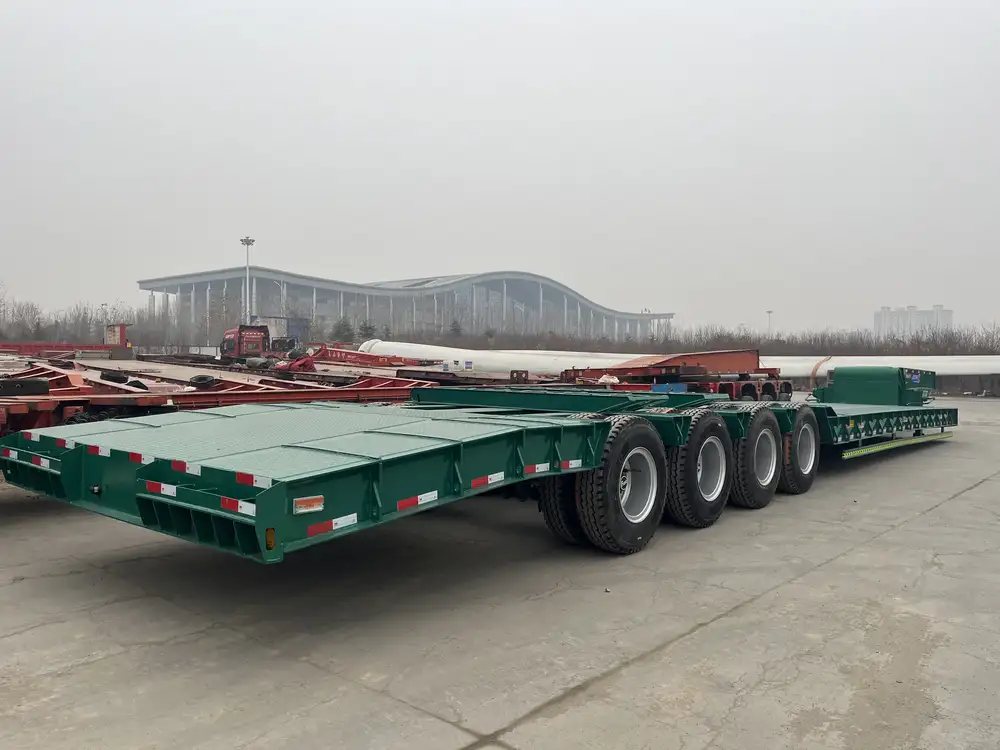
Importance of Trailer Weight in Transportation
The weight of a semi-trailer significantly impacts various aspects of transportation, including fuel efficiency, payload capacity, regulatory compliance, and overall operational costs. Understanding and managing trailer weight is essential for maximizing profitability and ensuring the safe and efficient movement of goods.
Implications of Trailer Weight
| Aspect | Impact of Weight |
|---|---|
| Fuel Efficiency | Heavier trailers consume more fuel, increasing operational costs. |
| Payload Capacity | Excessive trailer weight reduces the allowable payload, limiting cargo size and volume. |
| Regulatory Compliance | Adhering to weight limits is crucial to avoid legal penalties and ensure road safety. |
| Maintenance Costs | Increased wear and tear on vehicles and infrastructure due to heavier loads. |
Factors Influencing Low Bed Trailer Weight
Several factors contribute to the overall weight of a low bed trailer. Manufacturers must carefully consider these elements to design trailers that balance weight with strength and functionality.
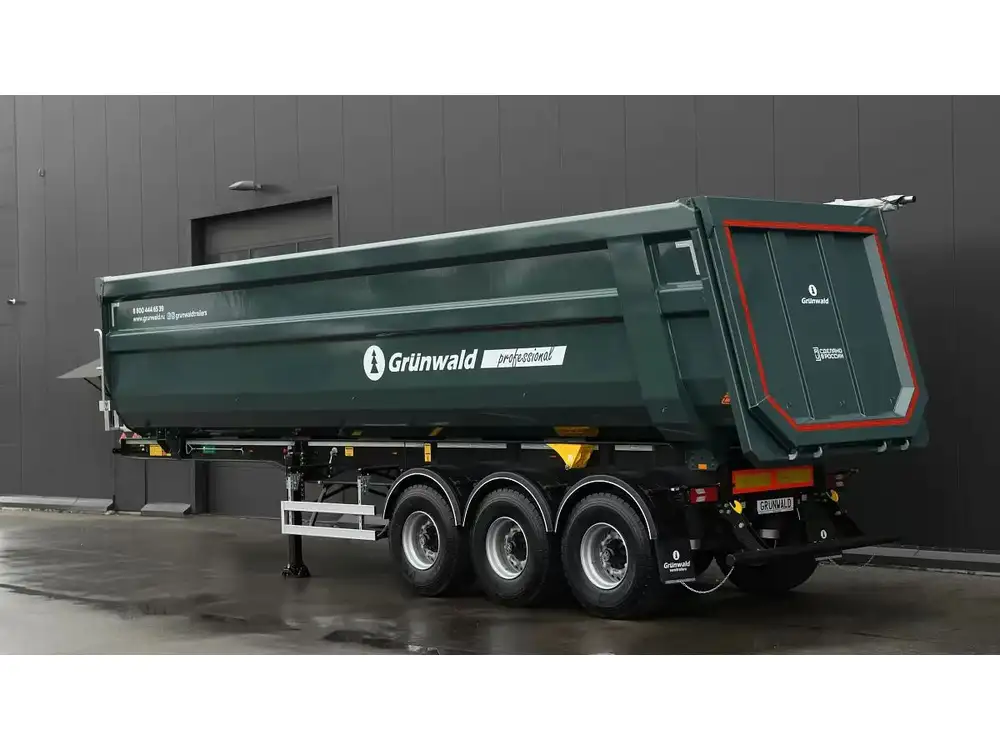
Material Selection
The choice of materials directly affects the trailer’s weight and durability. Lightweight yet strong materials like aluminum alloys and high-strength steel are preferred to minimize weight while maintaining structural integrity.
Design and Engineering
Advanced engineering techniques, such as optimized frame geometry and aerodynamic designs, play a crucial role in reducing trailer weight. Incorporating modular designs can also facilitate easier maintenance and customization without adding unnecessary weight.
Manufacturing Processes
Innovative manufacturing processes, including precision welding and additive manufacturing, allow for the creation of lightweight components without compromising quality. Efficient fabrication methods contribute to overall weight reduction and enhance the trailer’s performance.
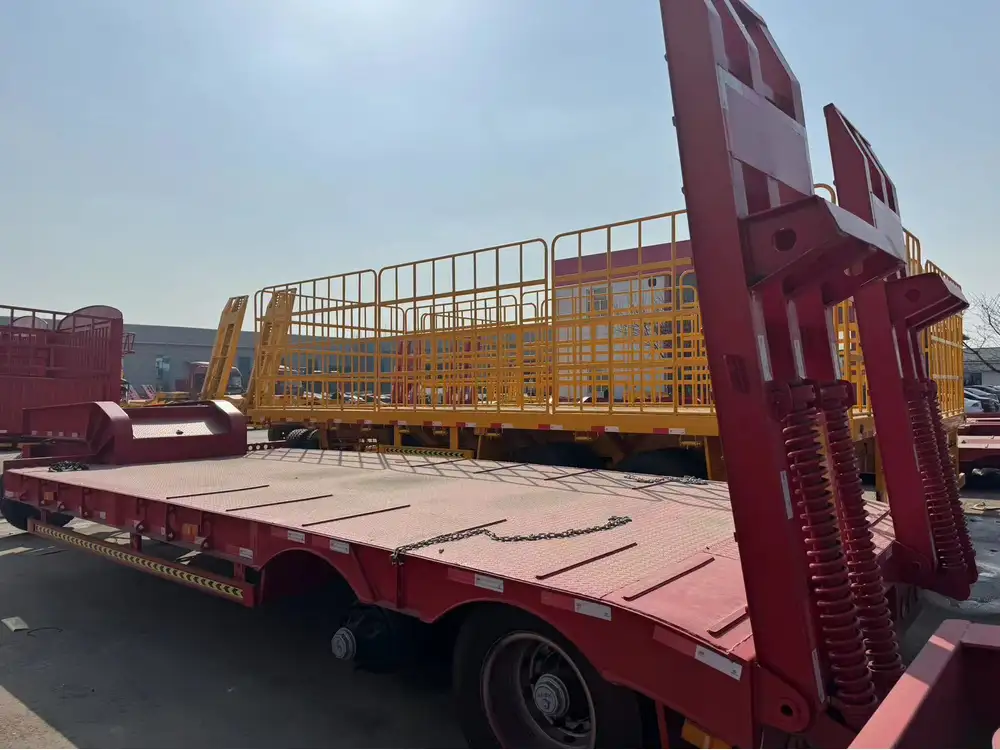
Benefits of Low Bed Trailer Weight
Opting for a low bed trailer with optimized weight offers numerous advantages that can significantly enhance operational efficiency and cost-effectiveness.
Enhanced Fuel Efficiency
Lighter trailers require less energy to transport, resulting in lower fuel consumption. This not only reduces operational costs but also contributes to a smaller carbon footprint, aligning with sustainable business practices.
Increased Payload Capacity
By minimizing the trailer’s weight, more of the allowable weight can be allocated to the payload. This enables the transportation of larger or more numerous goods within legal weight limits, maximizing revenue potential.

Improved Maneuverability and Safety
Lighter trailers are easier to handle, especially in tight spaces or challenging terrains. Enhanced maneuverability reduces the risk of accidents and ensures safer transportation of valuable or sensitive cargo.
Compliance with Regulations
Adhering to weight regulations is essential to avoid fines and legal issues. Low bed trailers designed with optimal weight ensure compliance with regional and national transportation laws, facilitating smoother logistics operations.
Designing Low Bed Trailers for Optimal Weight
Achieving the perfect balance between weight and strength requires meticulous design strategies. CarMax Trailer employs advanced design principles to create low bed trailers that meet the highest standards of efficiency and durability.

Structural Optimization
Utilizing finite element analysis (FEA) and other simulation tools, we optimize the trailer’s structure to eliminate unnecessary material without compromising strength. This results in a lightweight yet robust frame capable of handling heavy loads.
Aerodynamic Enhancements
Incorporating aerodynamic features such as streamlined contours and reduced drag surfaces minimizes resistance during transit. This not only improves fuel efficiency but also enhances the trailer’s stability at high speeds.
Modular Components
Designing trailers with modular components allows for easy maintenance and adaptability. Interchangeable parts can be replaced or upgraded without adding excessive weight, prolonging the trailer’s lifespan and functionality.

Material Choices and Their Impact on Weight
The selection of materials is a critical factor in determining the overall weight of a low bed trailer. CarMax Trailer utilizes a range of advanced materials to achieve lightweight designs without sacrificing performance.
High-Strength Steel
High-strength steel offers superior durability and load-bearing capacity while being lighter than traditional steel variants. This material choice enhances the trailer’s structural integrity without adding unnecessary weight.
Aluminum Alloys
Aluminum alloys are renowned for their lightweight properties and resistance to corrosion. Incorporating aluminum components reduces the trailer’s overall weight and extends its service life, particularly in harsh environmental conditions.
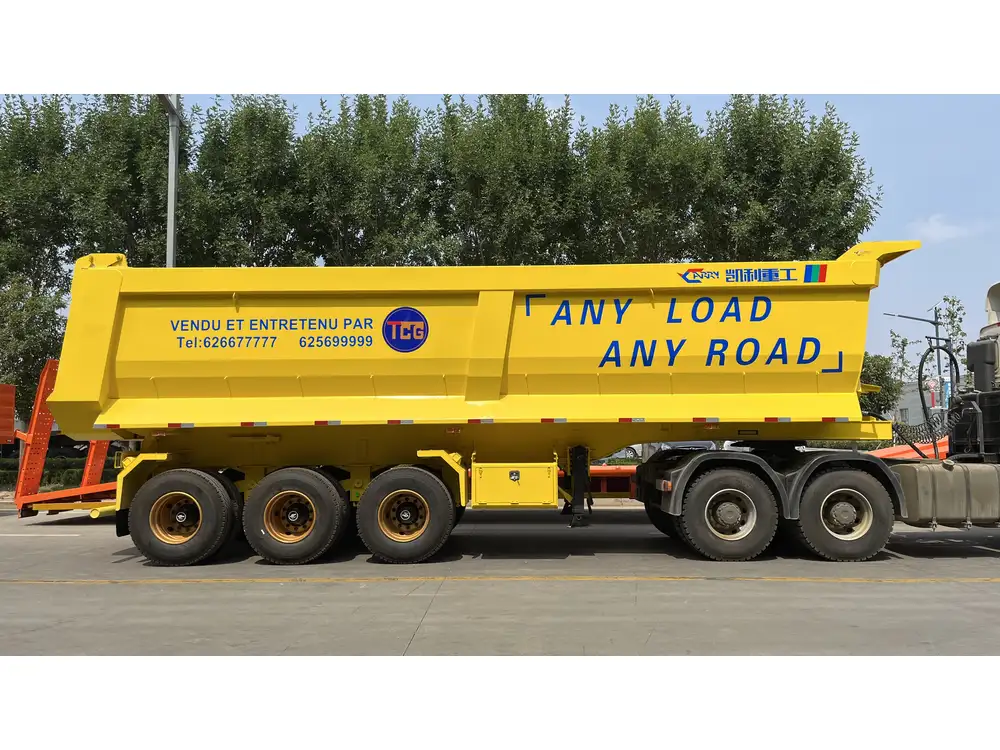
Composite Materials
Emerging composite materials provide exceptional strength-to-weight ratios, making them ideal for specific trailer components. These materials allow for further weight reductions and can be tailored to meet the unique demands of various cargo types.
Impact of Material Choices
| Material | Weight Reduction | Durability | Cost Implications |
|---|---|---|---|
| High-Strength Steel | Moderate | High | Cost-Effective |
| Aluminum Alloys | Significant | High | Higher Initial Cost |
| Composite Materials | Substantial | Variable | Variable |
CarMax Trailer Innovations in Lightweight Design
At CarMax Trailer, we continuously push the boundaries of trailer design to deliver products that set industry benchmarks for weight reduction and performance.

Advanced Welding Techniques
Employing precision welding techniques ensures strong and lightweight joints. These methods reduce material waste and enhance the overall structural efficiency of the trailer.
Additive Manufacturing
Utilizing additive manufacturing enables the creation of complex, lightweight components that would be challenging to produce through traditional manufacturing methods. This innovation allows for greater design flexibility and weight optimization.
Smart Design Software
Integrating cutting-edge design software facilitates the creation of highly optimized trailer structures. These tools enable our engineers to model and test various design iterations quickly, identifying the most effective solutions for weight reduction.

Comparing Low Bed Trailers to Conventional Semi-Trailers
Understanding the distinctions between low bed trailers and conventional semi-trailers is essential for selecting the right equipment for specific transportation needs.
| Feature | Low Bed Trailers | Conventional Semi-Trailers |
|---|---|---|
| Deck Height | Low, facilitating tall loads | Standard, suitable for regular cargo |
| Load Capacity | High, ideal for heavy and oversized loads | Moderate, optimized for general freight |
| Maneuverability | Enhanced for specific applications | Versatile for various transportation needs |
| Fuel Efficiency | Higher due to optimized weight | Varies based on trailer weight |
| Usage Scenarios | Construction, heavy machinery transport | Retail goods, perishable items, general freight |
Regulatory Considerations for Trailer Weight
Compliance with regional and national weight regulations is paramount to ensure legal transportation and avoid penalties. Low bed trailers must be designed and operated within the stipulated weight limits set by transportation authorities.
Weight Limits by Jurisdiction
Different regions have varying weight limits for trailers, often based on axles, total trailer weight, and total combination weight with the tractor. Understanding these regulations is crucial for fleet operators to plan routes and loads effectively.
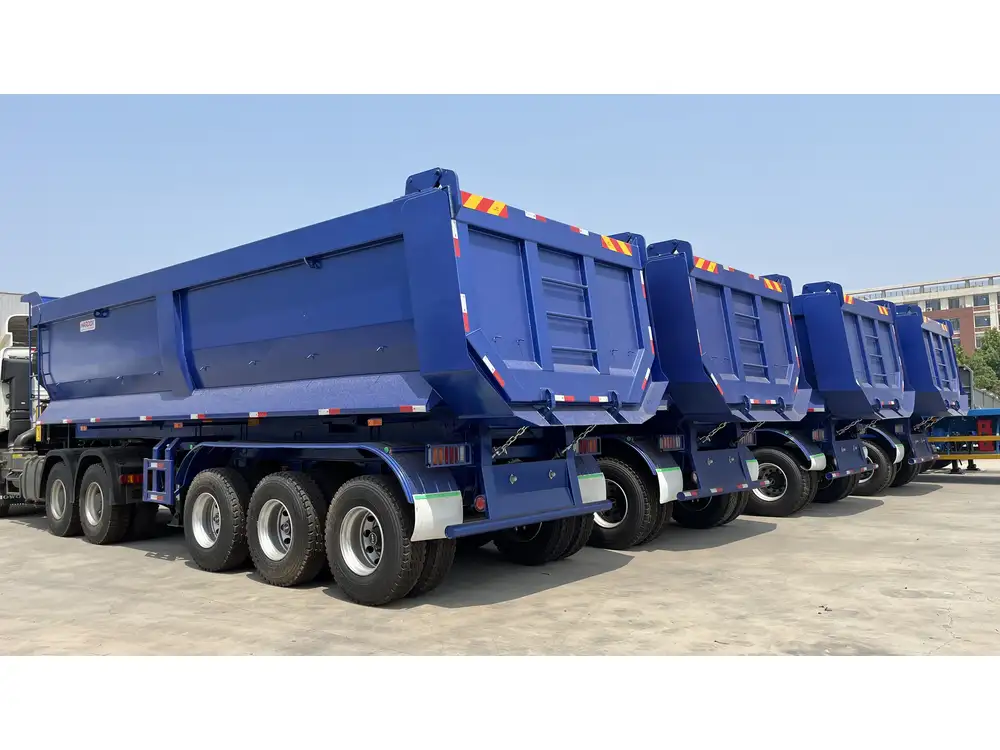
Impact on Design and Operation
Designing trailers with weight optimization in mind allows manufacturers like CarMax Trailer to create products that are compliant across multiple jurisdictions. Additionally, operational practices such as proper load distribution and regular weight assessments help maintain compliance and ensure safe transportation.
Maintenance and Longevity of Lightweight Trailers
While reducing weight is beneficial, it is equally important to ensure that trailers remain durable and require minimal maintenance. CarMax Trailer designs low bed trailers with longevity and ease of maintenance as key priorities.
Durable Material Selection
Choosing materials that resist wear and tear prolongs the trailer’s lifespan, reducing the frequency and cost of repairs. High-strength steels and corrosion-resistant alloys are integral to our trailer designs.
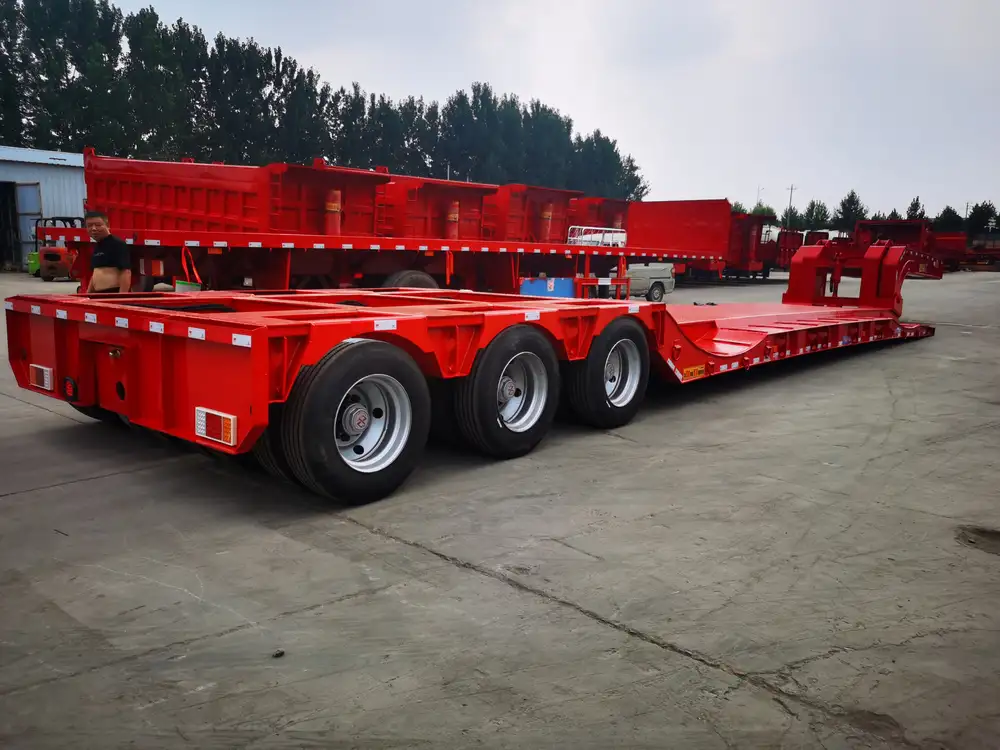
Regular Maintenance Protocols
Implementing regular maintenance schedules helps identify and address potential issues before they escalate. Routine inspections of critical components such as axles, suspension systems, and braking mechanisms ensure ongoing performance and safety.
Easy Access for Repairs
Designing trailers with accessibility in mind facilitates easier repairs and maintenance. Features such as removable panels and modular components allow for swift component replacements without extensive downtime.
Choosing the Right Low Bed Trailer Weight for Your Needs
Selecting the appropriate trailer weight involves assessing various factors, including the nature of the cargo, operational requirements, and regulatory constraints. CarMax Trailer offers a range of low bed trailer options tailored to diverse transportation needs.
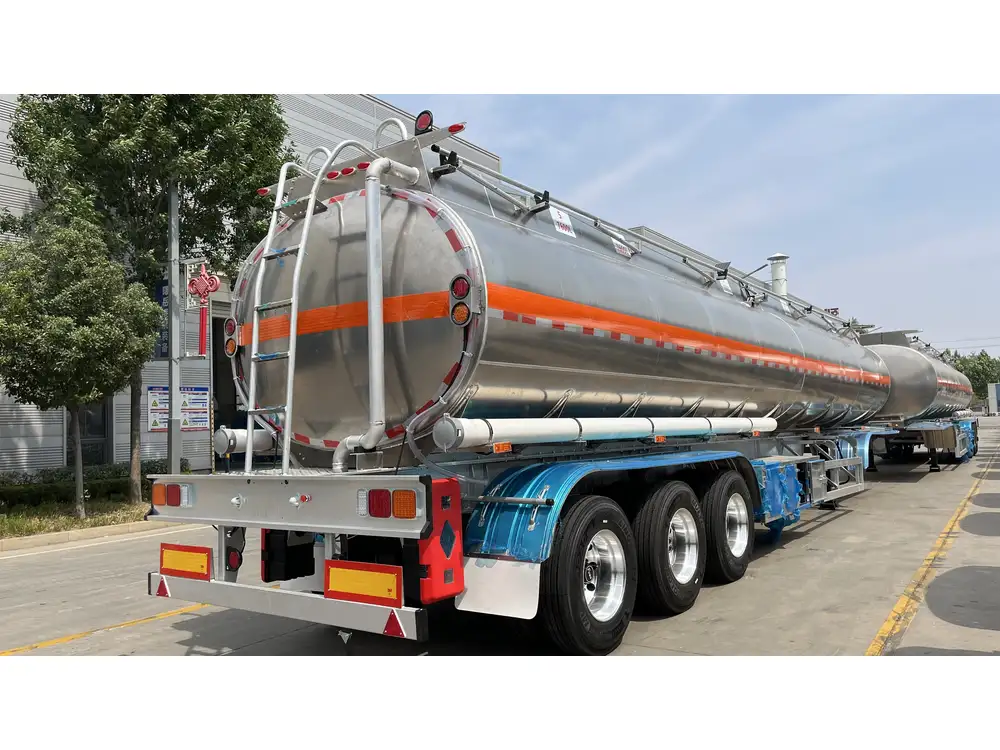
Assessing Cargo Dimensions and Weight
Understanding the size and weight of the cargo is the first step in selecting a suitable trailer. Low bed trailers come in different lengths and axle configurations to accommodate varying load requirements.
Evaluating Route and Terrain
The routes and terrains that the trailer will navigate influence the optimal trailer weight. Heavier trailers may require more robust engines and braking systems, while lighter trailers enhance maneuverability on challenging terrains.
Budget Considerations
Balancing the initial investment with long-term operational costs is essential. Lightweight trailers may have higher upfront costs due to advanced materials and technologies but offer savings through improved fuel efficiency and reduced maintenance expenses.

Cost Implications of Low Bed Trailer Weight
Investing in low bed trailers with optimized weight offers both short-term and long-term financial benefits. Understanding these cost implications helps businesses make informed decisions.
Initial Investment
Lightweight trailers often involve higher initial costs due to the use of premium materials and advanced manufacturing processes. However, this investment is offset by the subsequent operational savings.
Operational Savings
Reduced fuel consumption and lower maintenance costs contribute to significant long-term savings. Additionally, the increased payload capacity allows for more efficient transportation of goods, enhancing revenue potential.
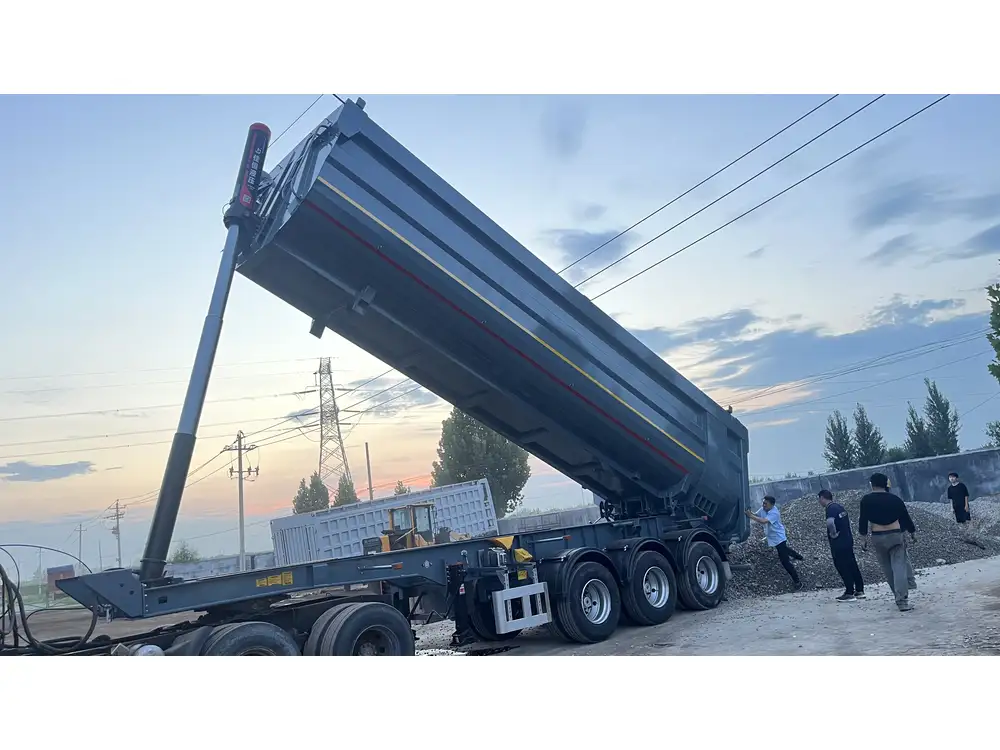
Return on Investment (ROI)
The combination of operational efficiencies and extended trailer lifespan results in a favorable ROI. Businesses that invest in low bed trailers can expect to recoup their investment through cost savings and increased productivity over time.
Future Trends in Low Bed Trailer Design
The future of low bed trailer design is poised to embrace further innovations aimed at enhancing efficiency, sustainability, and performance.
Electrification and Hybrid Systems
Integrating electric or hybrid propulsion systems can further reduce the environmental impact and operational costs of low bed trailers. These systems promise increased fuel efficiency and compliance with evolving emission standards.
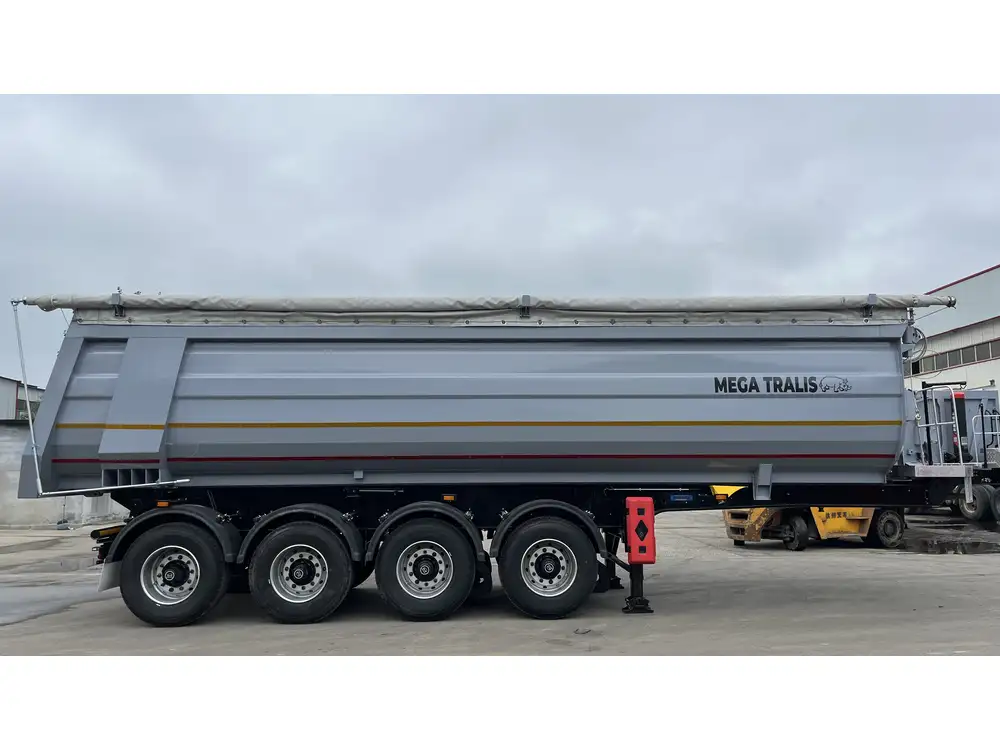
Smart Technology Integration
Incorporating smart technologies such as IoT sensors, real-time monitoring, and advanced telematics systems enables better fleet management, predictive maintenance, and enhanced operational oversight.
Sustainable Materials
The use of eco-friendly materials and manufacturing processes is set to increase, aligning with global sustainability goals. These materials offer weight reduction while minimizing the environmental footprint of trailer production.
Autonomous Driving Capabilities
Advancements in autonomous driving technology could revolutionize trailer operations, enhancing safety, reducing human error, and optimizing route planning for weight-efficient transportation.
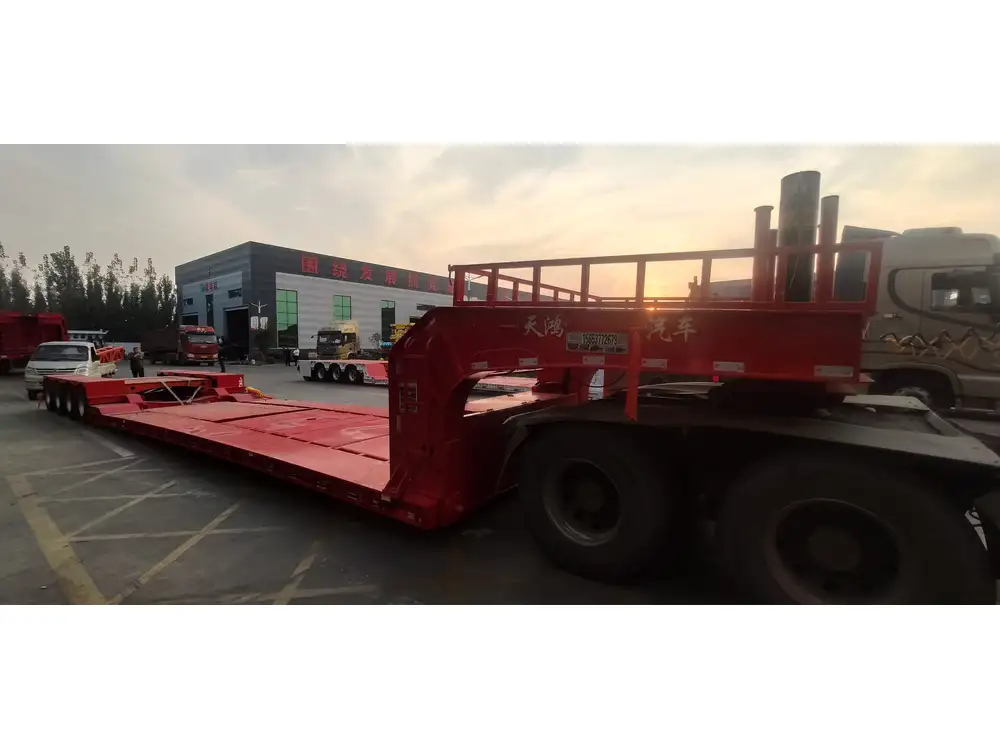
Conclusion
Low bed trailers are indispensable in today’s transportation and logistics industries, offering unparalleled capabilities for moving heavy and oversized loads. At CarMax Vehicle, we are committed to pushing the boundaries of trailer design to deliver lightweight, durable, and efficient low bed trailers that meet the diverse needs of our clients. By prioritizing weight optimization without compromising on strength or functionality, CarMax Trailer ensures that your transportation operations are both cost-effective and compliant with industry standards.
Frequently Asked Questions
1. What is the typical weight range for low bed trailers?
Low bed trailers generally range from 15,000 to 30,000 pounds, depending on the design, materials used, and intended cargo capacity. CarMax Trailer offers customizable options to meet specific weight requirements and regulatory standards.
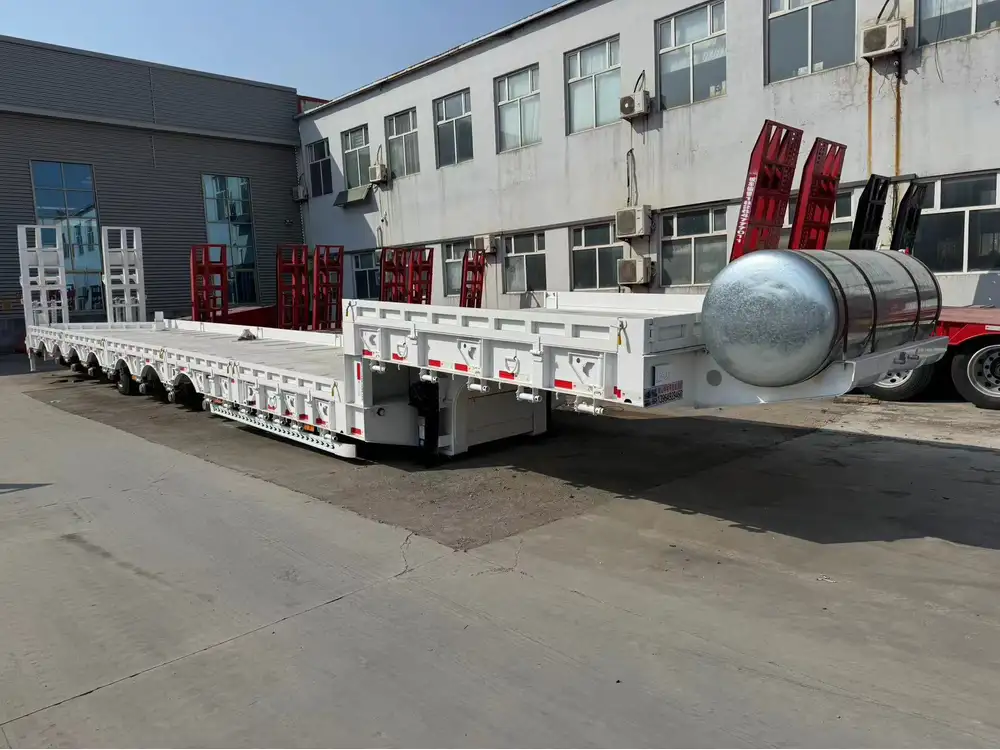
2. How does trailer weight affect fuel consumption?
Heavier trailers require more energy to move, leading to increased fuel consumption. Opting for lightweight trailers can significantly reduce fuel costs by improving fuel efficiency, especially over long distances and frequent routes.
3. Are low bed trailers suitable for all types of cargo?
Low bed trailers are ideal for transporting heavy and oversized loads, such as construction equipment, machinery, and large vehicles. However, for standard freight or perishable goods, other types of trailers may be more appropriate depending on the specific transportation requirements.
4. What materials are best for lightweight trailer manufacturing?
High-strength steel, aluminum alloys, and composite materials are commonly used in lightweight trailer manufacturing. These materials offer a favorable strength-to-weight ratio, enhancing durability while minimizing overall trailer weight.
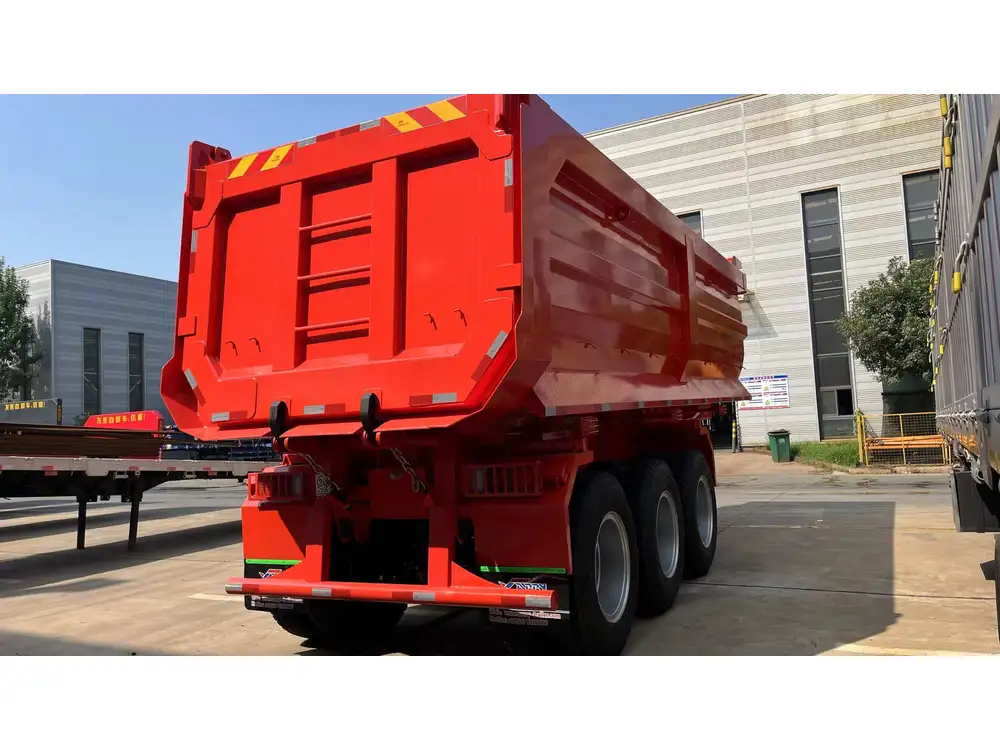
5. How can I ensure my low bed trailer complies with weight regulations?
To ensure compliance with weight regulations, it is essential to accurately assess the trailer’s weight, including the payload, and adhere to the specific weight limits set by transportation authorities in your region. CarMax Trailer provides comprehensive guidance and customizable designs to help you maintain compliance across different jurisdictions.



